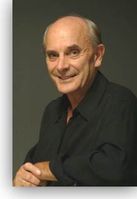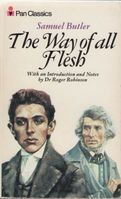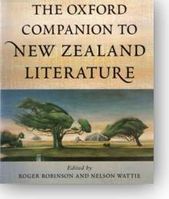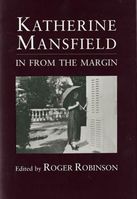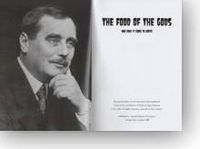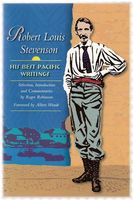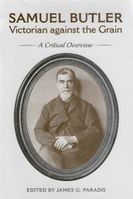About Roger the Scholar
Roger Robinson The Scholar
About Roger the Scholar
(Roger Robinson MA, PhD Cambridge. Emeritus professor, Victoria University of Wellington)
Short version:
After a PhD and some publications on Henry Fielding, my teaching led to research into nineteenth-century novelists, and eventually some of my most significant published work was on Thomas Hardy, Samuel Butler, and H.G. Wells. Working in New Zealand took me into that country's literature, with international publications on Katherine Mansfield, Ian Cross, Patricia Grace, Julius Vogel, and Butler, and in the 1990s the major commitment of editing and contributing extensively to The Oxford Companion to New Zealand Literature. A visit to the South Pacific on educational business led to interest in the literature of that region, with work on Albert Wendt, Alistair te Ariki Campbell, and other indigenous writers, culminating in Robert Louis Stevenson: His Best Pacific Writings. My last years of teaching produced exciting new work on "Journalism and Literature" and enabled me to bring together several decades' interest in "Utopias, Imagined Worlds and Satiric Fantasies." Since retirement, I've continued to do scholarly work as occasion arises, most recently (May 2013) a major presentation at the Samuel Butler Project at St John's College, Cambridge, as well as literary reviews.
At greater length:
Beginnings: England
From modest wartime beginnings in Birmingham and the London suburbs, and a Surrey county primary school, I was fortunate to win a Surrey scholarship to King's College School, Wimbledon, and even more fortunate to be taught there by the now-legendary Frank Miles, greatest literature teacher of his generation. I became Head Boy, and won a major scholarship to Queens' College, Cambridge. After three years' school-teaching (something all university lecturers could benefit from), I returned to Cambridge and gained my PhD. My thesis was on Henry Fielding, looking at how his work and ideas as a journalist, lawyer, magistrate, and pioneering criminologist affected novels like Tom Jones. I've continued to see literature as part of the real world, not the preserve of a precious elite. I did a lot of tutoring and some lecturing at Cambridge, and then had a good year as Assistant Lecturer at the University of Leeds.
University of Canterbury
I moved in 1968 to University of Canterbury, in Christchurch, New Zealand, as lecturer. It was a good decision academically as well as personally and for my family. New Zealand's universities through my time sustained a very high standard of teaching as well as good research. The only negative at Canterbury was the huge student classes and the marking those required. I lectured on a wide range of novels and drama, even some Chaucer and Shakespeare, taught classes in rural communities for Continuing Education, and published and gave conference papers on Fielding, Charles Dickens, George Eliot, Thomas Hardy, and Samuel Butler.
In 1972, I initiated and convened the first of my conferences, about Erewhon, to mark the book's centenary. Butler began it while sheep-farming in the Canterbury mountains, and while he was also finding friends and intellectual stimulation in Christchurch - as I was doing 100 years later.
Victoria University of Wellington
English
In 1975 I was fortunate again, appointed full professor at Victoria University of Wellington at age 35. At that time I had published some good scholarly essays, reviews, and an edition of Butler's The Way of All Flesh, and had done a lot of speaking etc outside the University, but the appointment was mainly in recognition of my reputation as a lecturer. Through the rest of my career, my top priority continued to be high quality and original teaching, with fair and constructive assessment of students' work.
I also reached wider audiences. In 1977 I was invited to deliver the prestigious Macmillan Brown Public Lectures, to packed rooms. I chose "Satiric Fantasies," airing ideas that I developed fully in some cases thirty years later. And there were a lot of papers to outside organisations - teacher groups, Rotary, etc. Unexpectedly soon I served a 3-year term as Chairman of the Department of English, a large and vigorous one, and right after that was called on for two terms as Dean of the Faculty of Languages & Literature, which meant being part of the University's senior management committee.
Within English my main contribution at this time was to balance the Department's commitment to the Renaissance period by building strength in modern literatures, especially by developing New Zealand literature. When I arrived, Victoria's sole NZ paper was not even part of the major. I made New Zealand literature more central for students, encouraged research, brought in leading writers, fostered active relations between the English Department and literary organizations like New Zealand Society of Authors (then PEN) and the Wellington Poetry Society, established (by surrendering a junior lectureship) the University's Creative Writing Fellowship, brought Creative Writing into the major and proposed that it develop to MA, founded the national Journal of New Zealand Literature, and initiated and convened two highly successful conferences. Victoria thus became seen as a leader in the field, something it has benefitted from richly since.
Another policy priority was to build links with high school English and its teachers. I founded the journal Views of English to make University literary and linguistic research accessible at that level, was one of the founders of the New Zealand Association for the Teaching of English, and gave a lot of papers to teacher groups: "Hardy the Feminist and Hardy the Humourist" was one provocative title. These were lively and sometimes contentious years. I challenged the young priests at Greenmeadows Seminary with James Joyce's attack on the Catholic church, exposed in a now-famous article the motives behind the literary combativeness of C.K. Stead, and defended Salman Rushdie's The Moor's Last Sigh against the Islamic fatwah, although I had reviewed the book with reservations about its pretentiousness. The Rushdie evening was the only public occasion when I asked for a police presence, though I probably needed protection more from some English teachers and from Stead.
Other work
As Dean, I put forward proposals that included lectureships in Film and Chinese (both were achieved a little later), expanded Drama Studies, saved Italian from extinction, and proposed an ambitious multi-arts centre (which was approved by Council but effected much later and in piecemeal form). I pushed the development of the Language Learning Laboratory, German, Women's Studies, and Maori Studies.
I returned to full-time teaching in the mid 1980s, but by then had become involved in demanding work on the New Zealand schools' English curriculum, as a member of the Universities' Entrance Board, later as an appointed advisor to the Minister of Education. In 1978 I revised the syllabus taken by high school students in the South Pacific, making a tour that gave me a long-term interest in the region's literatures. In the late 1980s I was contracted to write a draft revised syllabus for the senior high school years that was very well received, and then chaired the larger revision of the whole school English curriculum. English was a battlefield of controversy between extreme views. I once told the Minister that I consoled myself by thinking about my father, a soccer referee: "If you're being booed equally from both ends of the ground, you're doing a good job." That curriculum was far from perfect, but was a compromise that won approval from teachers and served students well for twenty years.
The University soon used me again, this time to oversee its increasing alliances. I was made "Director of Inter-Institutional Arrangements." The title I proposed for the new post was Director of Institutional Relationships, Tertiary, which would have given me the acronym "DIRT," but someone noticed. The biggest project was for the University to take over a foundering Polytechnic, which I saw as an opportunity for establishing Tourism and related "applied" and Services Management subjects within a prestigious new University degree programme. That work gave me the privilege of working with Peter Fehl, later Director of Facilities at Victoria and Auckland. The merger did not proceed (thanks to the folly of the Poly' s incoming Principal) but Victoria's Tourism degree did. Its success helps me believe that "I have done the state some service."
Final decade
Returning to teaching in 2001, I negotiated a part-time appointment that gave me time in USA, and at last allowed time to write, and began to produce the books listed on this website under "the Author on Literature," as well as the cross-over book (and major research project), Running in Literature. Several introductions and articles also seem important, especially my introductions to Vogel, Campbell and Cross (see "Author on Literature"), my review article on Stead (in New Zealand Books, March 1994), and the five long essays I contributed to the Oxford Reader's Guide to Thomas Hardy. (One scholar developed a whole book out of one of them.) See "Archives" soon for examples of these.
I also committed myself to help establish the new Summer Trimester as a high-quality programme, so developed and taught a set of original courses at all four levels of English. They were "Literature and Visual Media," "Journalism and Literature," "Utopias, Imagined Worlds and Satiric Fantasies," and a graduate level "Journalism and Literature." These succeeded in every way, from packing in students to producing graduate thesis topics in their various innovative fields. (In 2012, Nikki Hessell, a former student who compiled the course book for "Journalism and Literature" in 2001, published a ground-breaking study of "literary" writers who worked as parliamentary reporters, perfectly implementing the principles of that course.) The summer programme provided career-shaping opportunities for some outstanding people who helped me teach them, especially Stephen Harris, Stephanie Pietkiewicz, and Tatjana Schaefer. I'm as proud of those courses, the work of my sixties, as of anything I did as an academic. They were a good way to end.
That work continued beyond my formal retirement at the beginning of 2006, as student demand was high, results were good, and my energy seemed undiminished. I chose to fade slowly from my university career like the Cheshire Cat, until ending with the 2008-9 Trimester, and leaving only the grin behind. When a student told me in 2009 that I had taught her mother and her grandmother, it seemed time to stop.
Continuing literary scholarship
Stop teaching, that is. Although the emphasis has tilted towards writing about running, there are always literary-academic projects or book reviews, especially for "New Zealand Books," though I recently wrote for "BC Booklook" (Vancouver, Canada). Years of research were condensed into new publications on Butler: one in Samuel Butler: Victorian against the Grain, edited by James Paradis (University of Toronto Press), another in New Zealand as it Might Have Been 2, edited by Stephen Levine (Victoria University Press), and a third a public presentation for the Samuel Butler Project at St John's College, Cambridge, available on-line and as a photocopy publication. My belief that running is a legitimate literary subject was endorsed by the Cambridge invitation, and by a commission to write on the literature of running for World Literature Today. Requests to act as as PhD examiner and assessor for higher doctorates seem to have ceased. The work of those I taught or mentored continues, always the teacher's best reward. An unexpected testimony to my variegated career came in 2011 with the publication of Running Writing Robinson, edited by David Carnegie, Paul Millar, David Norton and Harry Ricketts. No tribute could be more deeply valued.
More from About Roger
England and New Zealand world championship representative; masters world champion; masters record-breaker (over-40 & over-50) at Boston, New York, Vancouver and other marathons.
Roger Robinson MA, PhD (Cambridge) Emeritus professor of English, Victoria University of Wellington
Roger Robinson would be interested in hearing from you for any speaking engagement or corporate opportunity.
